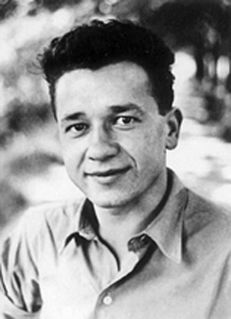A Quote by George Steiner
Literary criticism has about it neither rigour nor proof. Where it is honest, it is passionate, private experience seeking to persuade.
Related Quotes
Where there is Love and Wisdom, there is neither Fear nor Ignorance.
Where there is Patience and Humility, there is neither Anger nor Annoyance.
Where there is Poverty and Joy, there is neither Cupidity nor Avarice.
Where there is Peace and Contemplation, there is neither Care nor Restlessness.
Where there is the Fear of God to guard the dwelling, there no enemy can enter.
Where there is Mercy and Prudence, there is neither Excess nor Harshness.
I could not become anything; neither good nor bad; neither a scoundrel nor an honest man; neither a hero nor an insect. And now I am eking out my days in my corner, taunting myself with the bitter and entirely useless consolation that an intelligent man cannot seriously become anything, that only a fool can become something.
I love acting in the theater,but I'm fascinated with acting on film. If it's a film or a play or whatever, if the writing is good and you really feel passionate about it, you just can't lose. You'll grow from it. Whether it's a success or not is neither here nor there; you're going to grow as an artist from this experience.
M. Mabeuf’s political opinion was a passionate fondness for plants, and a still greater one for books. He had, like everybody else, his termination in ist, without which nobody could have lived in those times, but he was neither a royalist, nor a Bonapartist, nor a chartist, nor an Orleanist, nor an anarchist; he was an old-bookist.
First one gets works of art, then criticism of them, then criticism of the criticism, and, finally, a book on The Literary Situation , a book which tells you all about writers, critics, publishing, paperbacked books, the tendencies of the (literary) time, what sells and how much, what writers wear and drink and want, what their wives wear and drink and want, and so on.
You may talk about religion and speak about the Gospel, and say we have got the truth and the plan of salvation, and we have got the authority of the Priesthood; but if we are not honest, it does not amount to anything; for neither God nor honorable men love dishonesty. We must, therefore, be an honest people.
Reality is neither subjective nor objective, neither mind nor matter, neither time nor space. These divisions need somebody to happen to, a conscious separate center. But reality is all and nothing, the totality and the exclusion, the fullness and the emptiness, fully consistent, absolutely paradoxical. You cannot speak about it, you can only lose yourself in it.
It is important to know that criticism is a natural part of life and speaking out, and to know that a certain amount of the criticism you receive may have nothing to do with you, your argument, or the way you are articulating yourself. Some criticism online and in the physical world is neither constructive, nor balanced or intelligent. Some of it is abuse.
Humility has nothing to do with depreciating ourselves and our gifts in ways we know to be untrue. Even "humble" attitudes can be masks of pride. Humility is that freedom from our self which enables us to be in positions in which we have neither recognition nor importance, neither power nor visibility, and even experience deprivation, and yet have joy and delight. It is the freedom of knowing that we are not in the center of the universe, not even in the center of our own private universe.
The man whose bosom neither riches nor luxury nor grandeur can render happy may, with a book in his hand, forget all his torments under the friendly shade of every tree; and experience pleasures as infinite as they are varied, as pure as they are lasting, as lively as they are unfading, and as compatible with every public duty as they are contributory to private happiness.






































